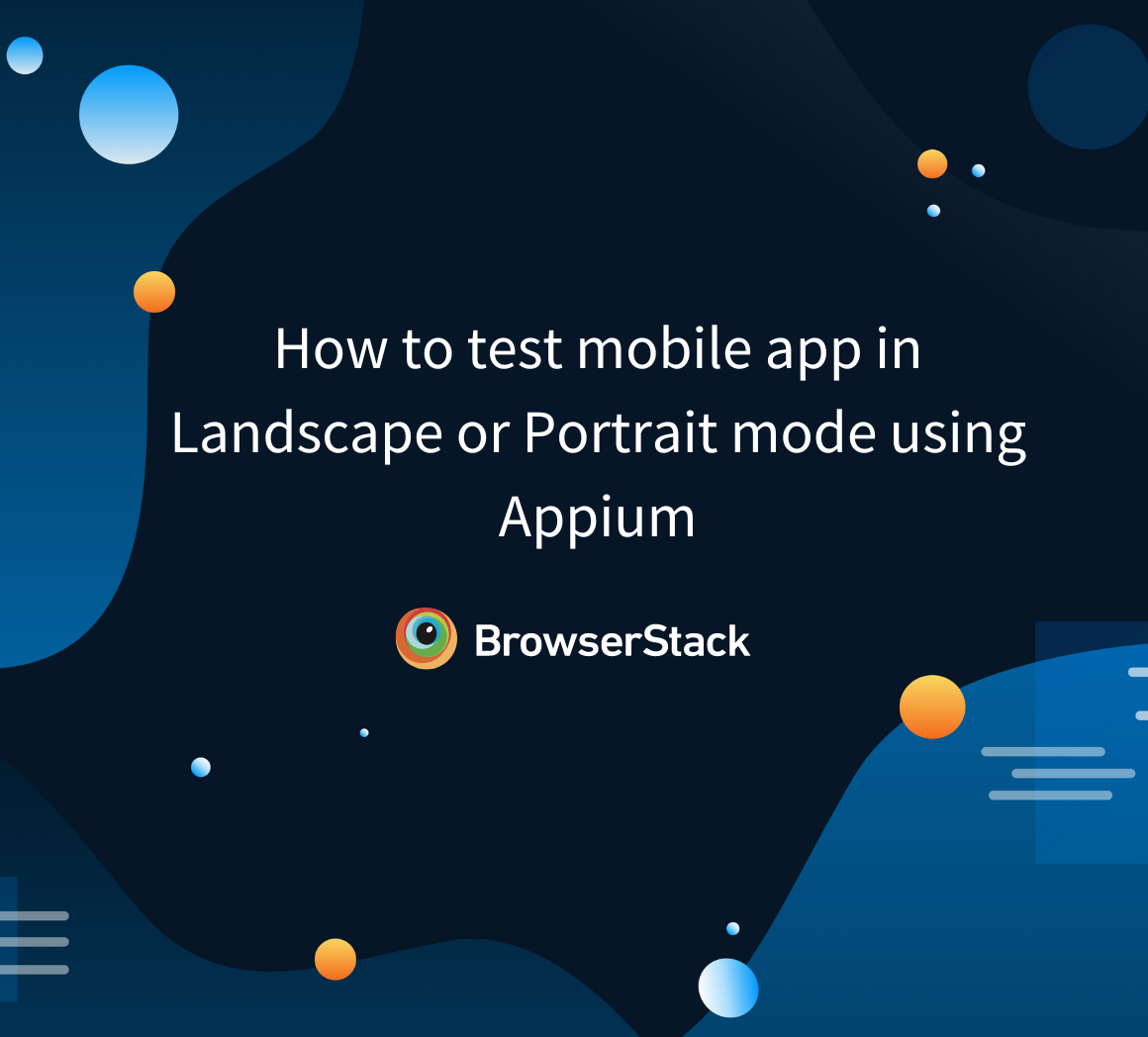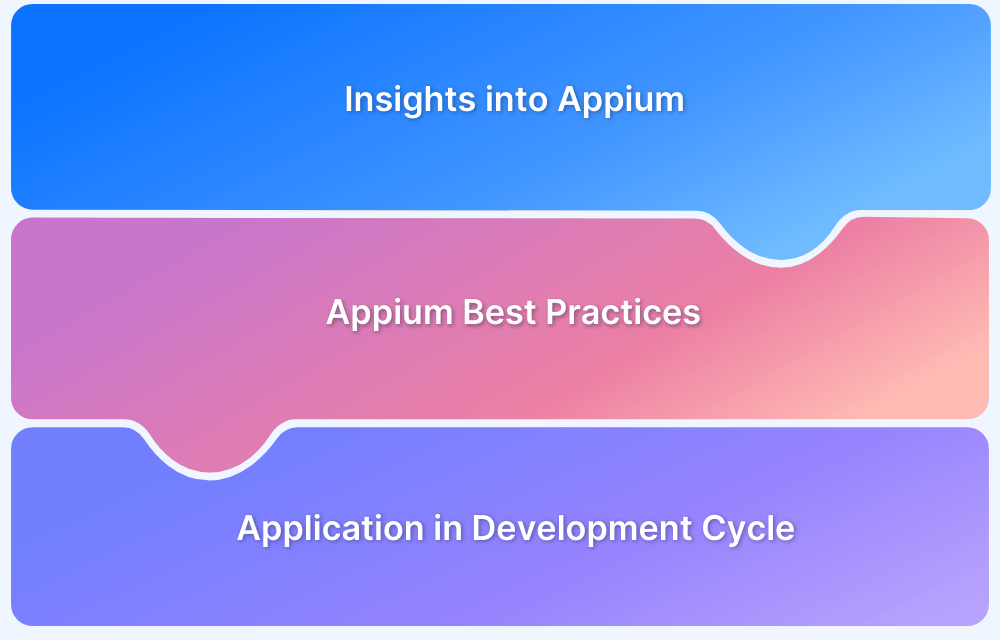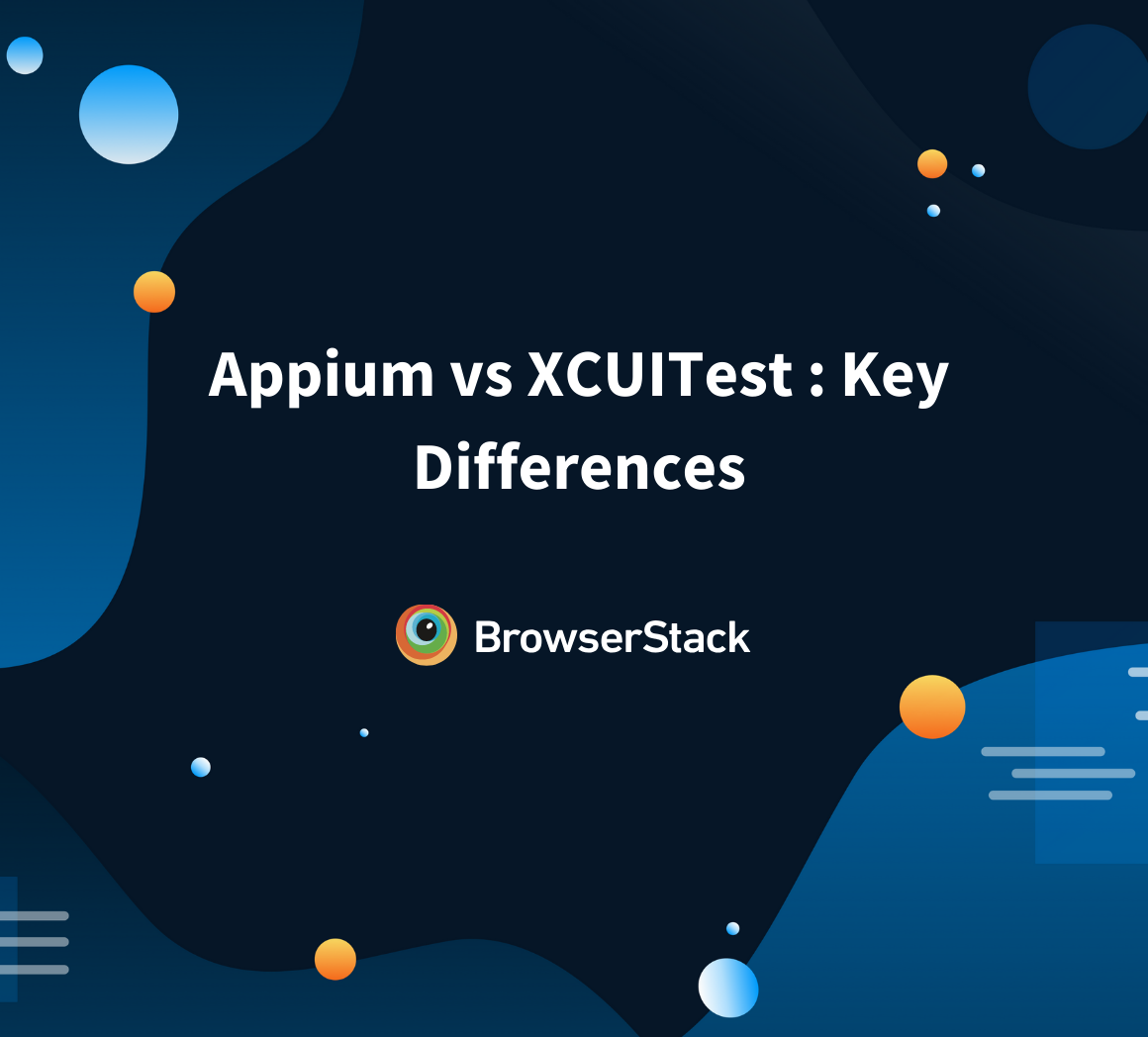Overcoming Top Challenges faced in Appium Automation
By Mohammed Waseem, Community Contributor - October 3, 2022
If tested separately, native, mobile web, and hybrid applications can be time-consuming and cost-bearing for organizations. For such tiresome tasks, organizations often go for tools that can automate all of the above, including windows desktop applications, for example – Appium.
Appium is an open-source tool that can automate the testing of native, mobile web, and hybrid applications on Android, iOS, etc. Still, it can be pretty overwhelming for QA professionals working with Appium.
In this guide, we will understand the Appium challenges a team can face while working with it and how they can make the most efficient decisions for optimum usage and performance of this open-source testing framework.
What is Appium?
Appium is an open-source automation tool for mobile testing using various programming languages and platforms such as iOS, Android, etc. Appium Follows a client-server architecture in which a client-side consist of an automation script and the server side contains a test script written in node.js that receives command requests from the client and executes them on the devices. The devices here can be physical, emulators/simulators, etc.
Follow-Up Read: How to set up your Appium Grid
Native vs Mobile Web vs Hybrid Applications
Different types of multi-experience apps one can be built for mobile devices. Each type has its own advantages and disadvantages, and the route a team will choose depends on several factors like the Time to Market, the Functionality required, and Cost.
Native | Mobile Web | Hybrid |
| You can only access native applications if installed on the local device. These native apps are created using iOS or Android mobile. | The mobile web is an application that does not require installation and can be accessed through a URL on the web browser. | The hybrid application, on the other hand, includes both web browser support with a URL and a dedicated native app with separate or similar functionality. |
| Example – Spotify | Example – browserstack.com | Example – Instagram |
Overcoming Top Challenges in Appium Automation
Appium Setup, Types of Applications, and OS
Appium can be very harsh with the installation and setup, with errors like resources crashing on startup, browser start-up failure, device installer, etc. And with all the various applications (native, mobile web, hybrid) and Appium’s inability to run tests on multiple operating systems, the entire process is a collection of tests on multiple devices and operating systems. It makes it challenging for the team to set up every device with specific configurations on different OS.
Solution:
- Emulators for fast and reliable mobile testing.
- Cloud-based infrastructure to navigate real device-browser-OS combinations for mobile app testing.
- Port number, setting capabilities, and installation dependencies to reduce the setup shortcomings in Appium.
Device Fragmentation and Test Management
With the onset of all the smartphones and various versions of operating systems, defragmentation has become quite a concern for the QA teams to fragment the test cases and resources to cater to all the devices and operating systems in the market. Otherwise, the entire testing strategy can be termed inadequate for up-and-coming mobile interfaces. This can be quite a setback and ruin the entire testing strategy.
Solution:
- Cloud-based testing can navigate various devices and operating system configurations for mobile app testing.
- Test Management tools to efficiently manage all the stakeholders and deliver all the apps with the requirement intact.
- Device fragmentation can be dealt with by building a device matrix for mobile app testing on the cloud.
Locators and Test Development
A massive amount of resources are spent in navigating through the elements within the application. The expenditure on this can be rather unpleasant for the budget management stakeholders, since the organization is developing an enterprise testing strategy that will ensure that each device interacts with the app as expected, without any shortcomings. Appium also has a crippling feature that cannot detect the elements not present on the screen i.e. scroll is disabled for Appium.
Solution:
- Using Accessibility IDs instead of XPath
- Using the element’s size, and finding the last element to navigate to the next.
- Navigate to the same element using a compatible function/method. For example – scroll() method in python and ScrollToExact() in java.
Follow-Up Read: Understanding FindElements in Appium
Why use Appium for App Automation?
The challenges highlighted in this article vary in the shortcomings that can cost an organization/enterprise dearly in terms of time and resources. Appium is also the tool that can provide cross-browser support for native and hybrid applications along with JSON wire protocol. On top of this, Appium is also compatible with physical devices and emulators.
It also allows parallel execution of test automation scripts on Android or iOS sessions using UIAutomator, UIAutomation, or Xcode9 which speeds up the testing process and ensures scalability.
When it comes to mobile app testing, regardless of whether the application is native, hybrid, or mobile web, running on Android, iOS, or Windows, Appium is the go-to choice for automated app testing. Here’s why:
- With an in-built UIAutomator, Appium produces detailed logs for better test result analysis and debugging
- Flexibility to write test code in different languages (Java, JavaScript, PHP, Ruby, Python, and C#)
- Reusability of the same code for different device platforms such as iOS, Android, and Windows saves a lot of time and effort
- QAs have full control of the back-end APIs and databases using the test code.
- Testers do not have to modify or recompile the app under test in any way, as Appium uses the standard automation APIs on all platforms
Although emulators/simulators are generally easier to set up and are considered to be more cost-effective, they are not the best choice to confirm the functionality of an application. To perform extensive cross-platform testing for mobile apps, BrowserStack App Automate provides Appium testing on a real device cloud that helps combat device fragmentation.



